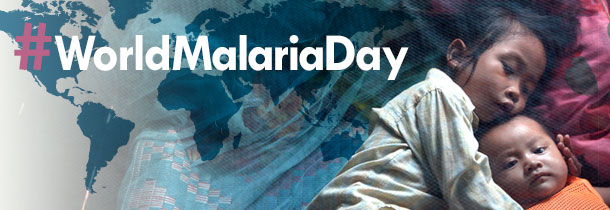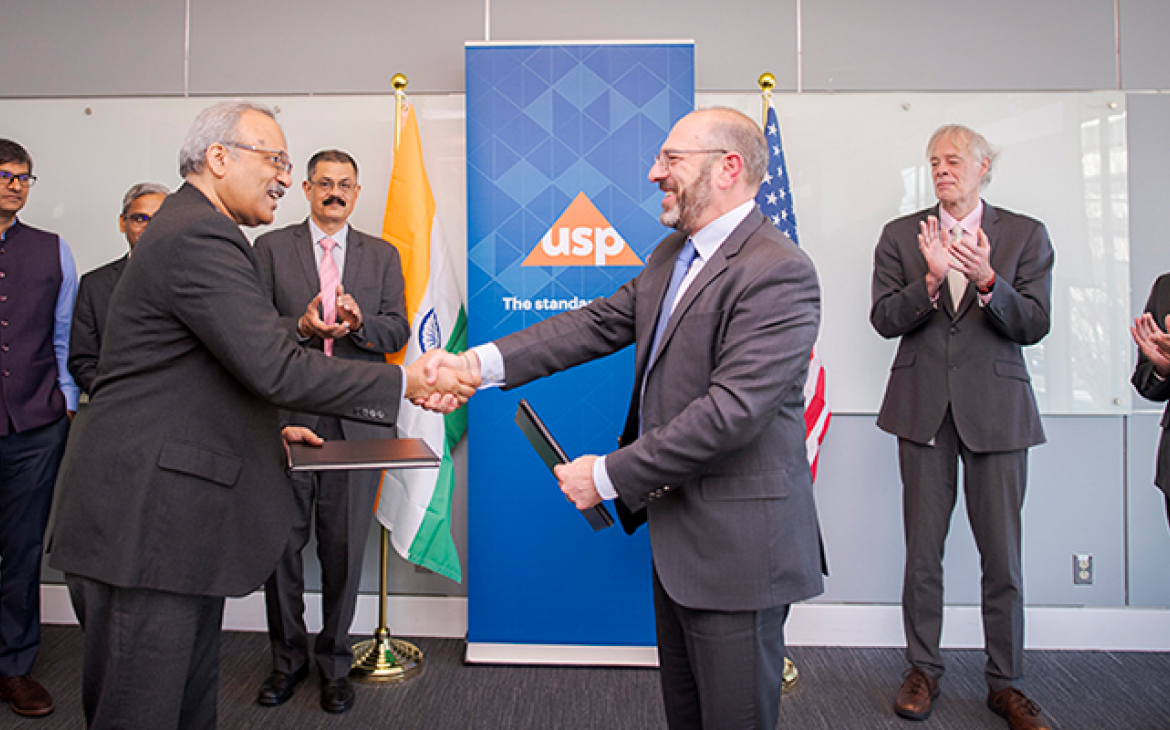
On this World Malaria Day, the world is calling for an end to malaria. To get there, we must increase efforts to ensure that antimalarials used to treat it are of good-quality, safe and effective.
Leaving the quality of antimalarial drugs to chance is costly. The high price—untreated illnesses, lost lives, wasted opportunities and resources, stymied programs, systems and markets, and potential increase in parasitic resistance—is unacceptable. More must be done to close the treatment gap and provide the 214 million people newly infected with malaria each year[i] with reliable, quality-assured medicines.
Why is quality assurance crucial to ending malaria?
Quality assurance of medicines is a global public health imperative and prerequisite to ending malaria for good. It includes all activities undertaken to ensure the quality of antimalarial medicines, including development, manufacturing, quality control, procurement, distribution, marketing, and inspections. It is the only way to ensure that only medicines of sufficient quality to be safe and effective reach malaria patients.
Better Quality, More Reliable Treatment
Improved quality helps ensure safer and more reliable treatment.
Maximizes Opportunity
Quality assurance protects the priceless moments we have in public health to transform and save lives. Treatment opportunities can make a world of difference. Depending on the quality of the antimalarial consumed, they can be promising or unfavorable, moving us forward or backward in the fight against malaria. Healthcare encounters between providers and malaria patients, although brief, add up, and if maximized by providing only good quality medicines, could have a profound impact on ending malaria in populations.
For example, in South-East Asia, approximately 30% of antimalarial medicines examined by researchers over the past decade have been found to be of poor quality.[ii] [iii] If such prevalence of poor quality medicines actually exists in the region, and these dangerous medicines provided to malaria patients, a high proportion of the treatment opportunities could be wasted. In a region with 1.33 billion people at risk for malaria and 32 million cases each year, [iv] this could derail efforts underway to provide more reliable and effective medicines and close the treatment gap.
Reduces Risk of Failure
Quality control, or surveillance processes used to sample, test and monitor the quality of products in circulation in national markets can reduce the risk of treatment failure by preventing people with malaria from exposure to falsified, substandard and unapproved medicines.[v] [vi] In Lagos, Nigeria and Accra, Ghana, for example, rapid screening of antimalarial medicines in circulation reduced drug failure rates by at least 50%. [vii] In addition, contributions of poor quality medicines to the rise and spread of drug-resistant strains of malaria could be averted through effective quality assurance. [viii] [ix]
Better Quality, Better Health
Improved quality assurance helps countries at risk for malaria reach universal coverage goals.
Increases Quality-Assured Supplies
Quality assurance is paramount to achieving universal coverage of antimalarial medicines, which is a priority goal in many countries. Sound systems of procurement and supply are critical to achieving this goal. They enable scale up and distribution of antimalarial medicines in compliance to international quality standards. Globally, 337 million antimalarial treatments were procured from manufacturers in 2014. [i] Ensuring that these supplies are quality-assured could have a substantial health impact on defeating malaria.
Reduces System Inefficiencies
Establishing the quality assurance of medicines can help surmount national health system inefficiencies, such as poor drug quality, which is rooted and caused by weak regulatory structures and procurement mechanisms.[v] Improved drug regulation and quality control, and enhanced medicine quality testing strengthens health systems, making them more reliable, responsive, and resilient in the fight against malaria. As a result, countries are better prepared to harvest the inherent benefits of the plans, programs and services dependent on quality-assured medicines to improve public health and defeat malaria—for good.
Learn more about how quality medicines protect vulnerable populations.
Citations
[i] WHO. 2015. World Malaria Report 2015.
[ii] Nayyar GML et al. 2012. Poor-quality antimalarial drugs in southeast Asia and sub-Saharan Africa. The Lancet Infectious Diseases, Volume 12, Issue 6, 488-496.
[iii] Tabernero P et al. 2014. Mind the gaps: the epidemiology of poor-quality anti-malarials in the malarious world - analysis of the WorldWide Antimalarial Resistance Network database. Malaria Journal, 13: 139.
[iv] WHO-SEARO. 2011. Malaria Data 2010.
[v] WHO, Dept. of Health Systems Financing. 2010. World Health Report 2010. Background Paper, 28. Improving health system efficiency as a means of moving towards universal coverage.
[vi] WHO. 2016. Global Technology Strategy for Malaria 2016-2030.
[vii] Bate R, Hess K. 2010. Anti-malarial drug quality in Lagos and Accra - a comparison of various quality assessments. Malaria Journal, 9: 157.
[viii] Travassos MA, Laufer, MK. 2009. Resistance to antimalarial drugs: molecular, pharmacological and clinical considerations. Pediatr Res. 65(5 Pt 2): 64R–70R.
[ix] Committee on Understanding the Global Public Health Implications of Substandard, Falsified, and Counterfeit Medical Products; Board on Global Health; Institute of Medicine; Buckley GJ, Gostin LO, editors. Countering the Problem of Falsified and Substandard Drugs. Washington (DC): National Academies Press (US); 2013 May 20. 2, The Effects of Falsified and Substandard Drugs. Available from: http://www.ncbi.nlm.nih.gov/books/NBK202526/


